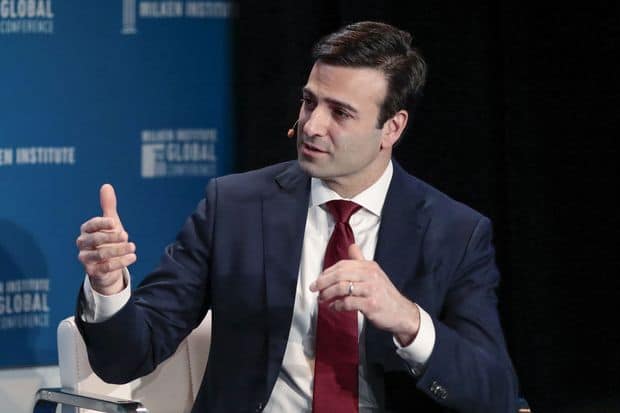Join Our Telegram channel to stay up to date on breaking news coverage
Craig Wright is continuing to defend his claim of billions of dollars in Bitcoins from the estate of his ex-partner, the now-deceased David Kleiman. After a new controversy over his ownership of some digital assets, the chief scientist at nChain and self-proclaimed Satoshi Nakamoto is speaking out in his defense.
All Bitcoins in 1Feex Were Legally Purchased
Earlier today, Wright shared a statement with industry news site Cointelegraph today, explaining that the recent rumors over his affiliation with now-defunct cryptocurrency exchange Mt. Gox.
The rumors began to swirl after Riccardo Spagni, the lead maintainer of privacy-focused digital asset Monero, revealed court documents tying Wright to the exchange on Twitter. Per a tweet on June 12, Spagni explained that Wright had told his lawyers that he was the one who stole over 80,000 Bitcoin tokens from Mt. Gox.
Just so we're clear, Craig Wright has just openly admitted (via his lawyers) to be the guy that stole 80k BTC from Mtgox. The screenshots below show the court documents indicating the "1Feex" address is where the stolen Mtgox funds were sent. What do you have to say, @CalvinAyre? pic.twitter.com/Yh1esDar6J
— Ric “el pony esponjoso” (@fluffypony) June 12, 2020
Spagni’s tweet included purported proof that Wright had stolen the assets and stored them in a 1Feex wallet address. The address itself is now affiliated with the Tulip Trust – a stash of Bitcoin that has been central to the dispute between Wright and his former partner’s estate.
Hoping to exonerate himself, Wright explained to Cointelegraph that Spagni was lying. He highlighted that he purchased all of the tokens in the 1Feex wallet in February 2011, with the tokens being transferred to the wallet a few weeks after buying them from Mt. Gox.
He added that the only evidence tying his transaction to any illegal move was a Skype chat between Mt. Gox founder and initial chief executive Jed McCaleb and Mark Karpeles, the man who McCaleb sold the exchange to.
“No other evidence or any credible evidence, such as internal/accounting records from Mt. Gox, has been put forward,” he continued, adding that Karpeles himself had a history of manipulating records.
Wright’s Tumultuous Legal Case
The statement added that no one reported the 1Feex transaction to the police between March 2011 when he bought the Bitcoins and Mt. Gox’s ultimate capitulation in 2014. Since the transcript that Spagni suggested that Karpeles would have known about the Bitcoins stored in the 1Feex address, Wright explained that the whole thing was suspicious.
As for Wright’s case, things are still heating up. The former nChain developer has been on the receiving end of harsh criticism for his conduct, although he remains resolute in claiming that he hasn’t done anything wrong.
Last month, a message signed by 145 wallets containing Bitcoin that was mined in its early years called Wright a “liar and a fraud.” The message immediately sent a ripple through the cryptosphere, with many positing that one of its signees could eventually be Satoshi Nakamoto.
While the speculations were eventually refuted, the message itself was pretty damning. For one, additional research confirmed that the addresses were part of the thousands, which Wright claimed in the Kleiman case. Considering that he had lied to the court and ducked accountability several times, it immediately put his defense in turmoil.
Kleiman’s lawyers immediately filed a notice of supplementary evidence to support their motion or sanctions against Wright. The case against him continues to build, although judges are still cautious, considering that the amount of money in dispute is quite a lot.
Join Our Telegram channel to stay up to date on breaking news coverage
